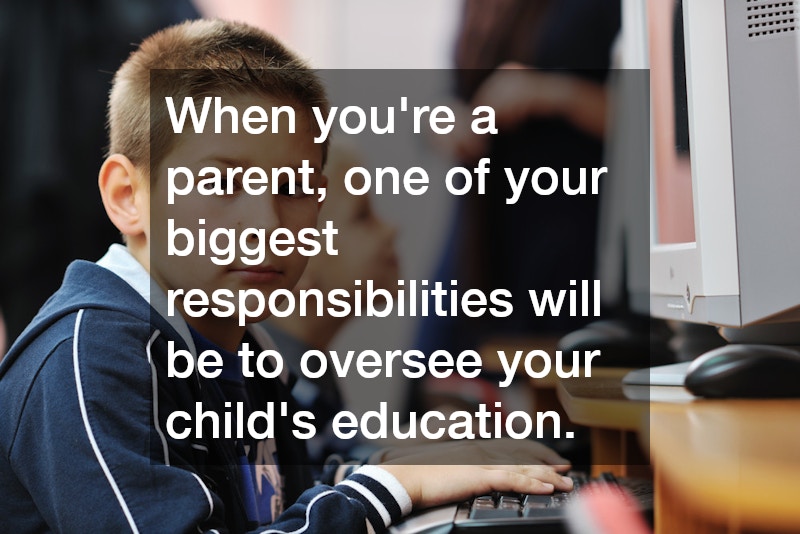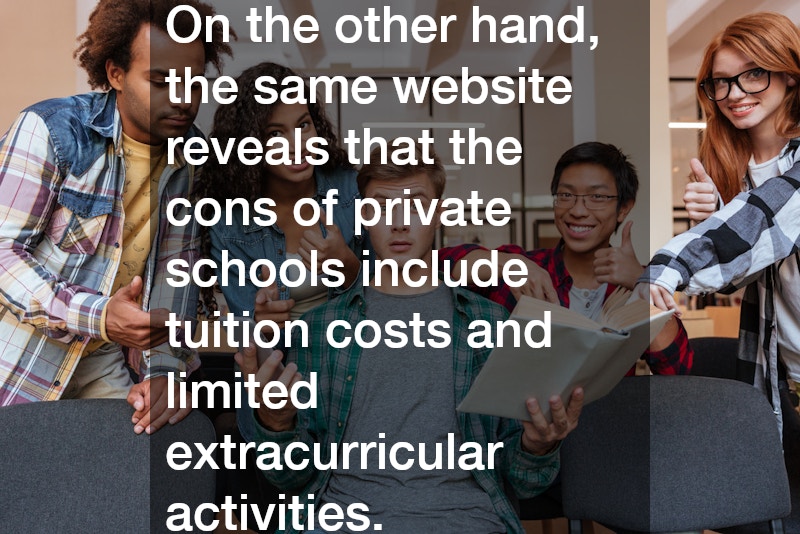
When you’re a parent, one of your biggest responsibilities will be to oversee your child’s education. You will want to ensure your child can one day thrive on their own. Many parents invest in their children’s future by enrolling them in good private schools. While some parents prefer private schools due to their faith background, others prefer the smaller classes available at private schools.

According to Bitglint, other benefits of private education include higher academic standards. Families of students in private schools often have a large influence on the curriculum and the direction of the classes since their financial contribution is the basis of the schools’ existence. On the other hand, the same website reveals that the cons of private schools include tuition costs and limited extracurricular activities.

Before you make a final choice from one of the nearby private schools, consider considering some benefits of public schooling that you may have overlooked. For example, according to the CDC, public schools offer students a better cross-section of the general public. Once students graduate from high school and go to college or into business, having had exposure to a diverse student body may better prepare them for that future.

When you are considering whether to send your child to public school or private school, you have to weigh the pros and the cons of both options. While there are many advantages of public schools, there also are advantages of private schools. It often comes down to personal choice, but there are issues to consider.
Probably the biggest advantage of public school is that it is free — at least in the sense that you don’t have to pay for tuition. Since public schools are funded by property taxes, anyone who owns real estate — either a home or commercial building — pays for the schools, whether their children attend or not. So if you are a property taxpayer, it can make sense to take advantage of the public schools that you already are paying for.
Another advantage of public schools is since they often are larger than private schools, they often offer better academic and athletic programs. This in large part has to do with funding and legal mandates. Public schools, especially large ones, often get more money than private schools do and they have certain laws they have to follow regarding what students they accept and what programs they have to offer.
Of course, private schools offer advantages as well. One of the advantages of private schools, especially top private schools, is that students often get more personalized attention because of smaller class sizes. That helps lead to students of private schools graduating at a higher rate and having a better acceptance rate for college.
Another one of the advantages of private schools is the sense of community. Such schools often do a better job than public schools of encouraging parent participation, which then leads to parents taking a more active role in their children’s education.
When it comes to preschool and pre kindergarten, private schools may be your only option. Many public school systems do not offer early childhood education programs, or if they do, they are restricted to low-income children. Just as with K-12 schools, private preschools tend to have smaller class numbers, which helps your child have a better chance to excel.
Whatever choice you make when it comes to your child’s education, you need to make sure you have weighed the advantages and disadvantages of each choice before making a decision.